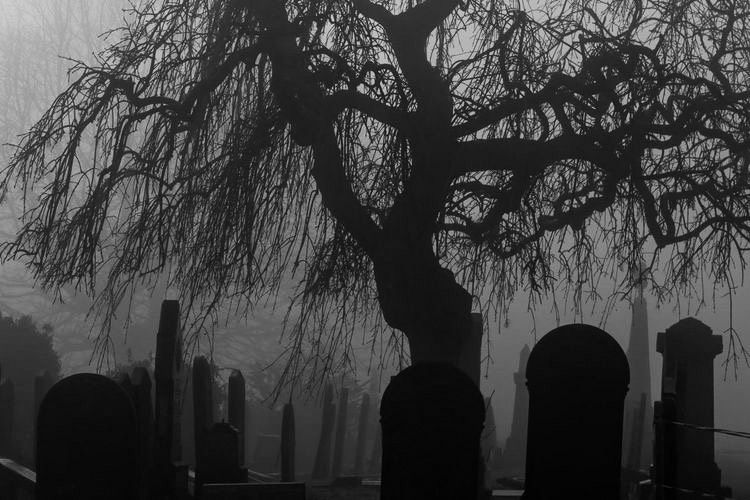“Do Not Go Gentle into That Good Night” is a poem by the famous Welsh poet Dylan Thomas [1914-1953], considered an essential part of the Modernism and Romanticism movements of the 1900s. Most of his works, rather than being intellectual or politically charged, are full of intense emotion and deep contemplation about human life.
The poem in question here is a villanelle, a kind of poetry marked by repeating lines and rhyme schemes. Throughout the poem, the speaker or poet urges his “father” to fight against death rather than embrace it. He uses repetition as an effective tool to drive across this point and implores him to hold his own against the wiles of death. It has been suggested that the poem was written for Thomas’s dying father, although he did not die until just before Christmas 1952, a year after the poem was published. Hence, there is no evidence of the poem being a tribute as such.
Analysis of the Poem
It begins with the line “Do not go gentle into that good night,” which sets the tone for the rest of the poem. This line is repeated as the final line of each stanza, creating a sense of urgency and coaxing the reader to heed the advice contained within it. The rest of the lines in each stanza provide examples of different types of people who do not go gently into the night, including “old age,” “wise men,” and “good men.” These lines propagate the idea that everyone should fight against death, no matter the age or circumstances.
Let’s look at the poem stanza-by-stanza.
Do not go gentle into that good night,
Old age should burn and rave at close of day;
Rage, rage against the dying of the light.
In this stanza, the poet urges someone (presumably an older person) not to “go gentle” into death but rather to resist and fight against it. The phrase “that good night” refers to death, personified as a gentle, peaceful entity. However, the poet suggests that old age should “burn and rave” at the end of the day; that the person should “rage against the dying of the light.” It suggests that the poet believes death must be fought against rather than embraced. The use of the word “rage” is repeated for the sake of emphasis.
Though wise men at their end know dark is right,
Because their words had forked no lightning they
Do not go gentle into that good night.
This stanza continues the theme of the first stanza, in which the poet urges the person not to go gently into death. The poet acknowledges that “wise men” may know that death is inevitable and “dark is right,” but still advises against going gently into it. The phrase “because their words had forked no lightning” suggests that these wise men may have been eloquent or intelligent, but their words did not have the power to change the course of events. Despite this, the poet still advises them not to “go gentle into that good night.” This suggests that the poet believes that death should be resisted even if one knows it is inevitable; the last line suggests so.
Good men, the last wave by, crying how bright
Their frail deeds might have danced in a green bay,
Rage, rage against the dying of the light.
In this stanza, the poet shifts to addressing the “good men,” urging them not to go gently into death. The phrase “the last wave by” suggests that these men are approaching the end of their lives. The poet describes how their “frail deeds” (presumably their accomplishments or good deeds) “might have danced in a green bay,” implying that they could have had a longer and more fulfilling life if death had not intervened. The poet then repeats the exhortation to “rage, rage against the dying of the light,” again emphasizing the idea that death should be resisted.
Wild men who caught and sang the sun in flight,
And learn, too late, they grieved it on its way,
Do not go gentle into that good night.
In this stanza, the poet addresses “wild men” and implores them, pressing onto the theme again. The phrase “who caught and sang the sun in flight” most likely means that these men were full of life and vitality. However, the poet says that they “learn, too late, they grieved it on its way,” implying that they only realized the value of life when it was too late. Despite any number of realizations and the time it takes for one to reach them, the poet continues to stress the idea of resisting giving in to death.
Grave men, near death, who see with blinding sight
Blind eyes could blaze like meteors and be gay,
Rage, rage against the dying of the light.
In this stanza, the poet addresses “grave men” who are “near death” and urges them not to go gently into it. The phrase “who see with blinding sight” suggests that these men have gained a new perspective or understanding as they approach the end of their lives. The phrase “blind eyes could blaze like meteors and be gay” suggests that even those who are physically blind can still find joy and light in life. This stanza layers repetition as a literary tool, using the phrases “blinding sight” and “blind eyes”. This is done to emphasize the diversity of characters he writes about in every new couplet so that he can contrast it with the alliterative last line.
And you, my father, there on the sad height,
Curse, bless me now with your fierce tears, I pray.
Do not go gentle into that good night.
Rage, rage against the dying of the light.
In this stanza, the poet addresses a specific person, “my father,” and asks him not to go gently into death. The phrase “there on the sad height” suggests that the father is on his deathbed. The poet asks the father to “curse, bless” him with his “fierce tears,” perhaps to express his love and emotional connection for his father. The poet then repeats the catchphrase to “not go gentle into that good night” and “rage, rage against the dying of the light,” yet again emphasizing that death should be resisted at all costs. The tone of this stanza is deeply personal and emotional, as the poet reveals his own feelings and relationship with his dying father.
10 New Book Releases In January 2023 To Look Forward To
Discussing the Themes of Do Not Go Gentle into That Good Night

One of the key themes in this poem is the idea of defiance in the face of death. Thomas urges his father and the reader to fight against the inevitability of death and go out with a sense of purpose and determination. This theme is evident in the alliterative lines. These lines convey a sense of anger and frustration at the idea of death, and they encourage the reader to resist the pull of the “good night.”
Another theme of the poem is the importance of living a meaningful and fulfilling life. The various examples of people who do not go gently into the night, such as “wise men” and “good men,” suggest that these individuals have lived rich and purposeful lives. This theme is further emphasized by the repetition of the phrase “do not go gentle,” which suggests that it is necessary to resist the temptation to give in to death and to, instead, live life to the fullest.
A third theme of the poem is the power of language and words to convey emotion and inspire action. The repetition of the phrase “do not go gentle” serves as a call to arms, requesting the reader to take immediate action and defy any possibility of death. Additionally, his use of vivid and descriptive language, such as “rage” and “wild men,” adds to the sense of urgency and passion.
Why you should read ‘Do Not Go Gentle into That Good Night’
“Do Not Go Gentle into That Good Night” is a poignant and powerful poem that addresses themes of defiance, meaning, and the power of language. It sends the message to resist death and to live a full and meaningful life. What stands out for me is the colorful imagery, easy to read once but to challenge to grasp all at once. It is a lesson on beauty in simplicity. Its vivid and descriptive language adds to the powerful verbosity of the poem, making it a timeless and enduring work of literature. The first time I read the poem, it gave me goosebumps. The second time, it gave me knowledge; the third time, inspiration, and every time since, it gives me hope, which I believe is the point of poetry writing.
Much like the tone of his most famous poem, Thomas lived a boisterous life. He was notorious for being a theatrical, public person – a fact evident in a letter he wrote his wife, Caitlin, in 1950, which also shows his softer side:
“I have done two readings this week to the Poetry Centre of New York: each time, there was an audience of about a thousand. I felt a very lonely, foreign midget orating up there, in a huge hall, before all those faces; the readings went well.
I’ve been to a few parties, lots of American poets, writers, critics, and hangers-on, some charming, all furiously polite and hospitable. But apart from on one occasion, I’ve stuck nearly all the time to American beer, which, though thin, I like a lot and is ice cold.”
At the age of 39, he collapsed in his New York hotel, entering a coma. He was declared dead shortly after, having never recovered consciousness. I truly hope he raged, raged against the dying light in his last few moments.

